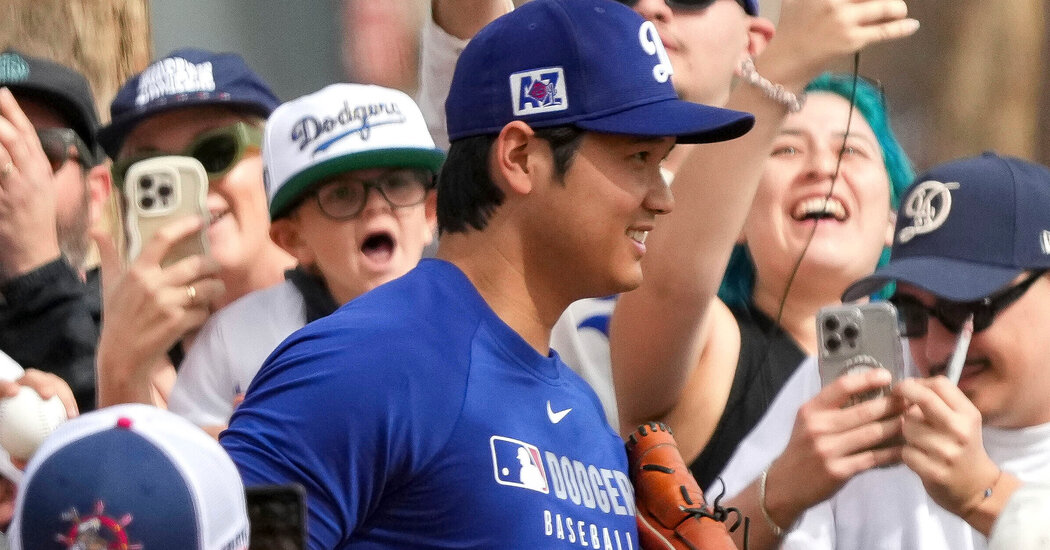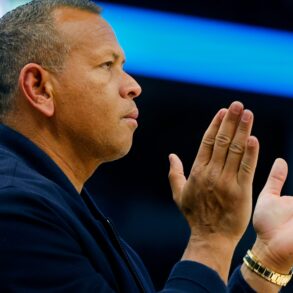
An interview with the M.L.B. commissioner.
A new baseball season is underway, and the sport is enjoying a sort of renaissance.
Baseball is making more money than it ever has. The addition of a pitch clock has made games quicker and created more action on the field. Attendance and ratings are on the rise.
But the sport also faces a possible long-term problem: the widening gap between its haves and have-nots.
Baseball’s future, both good and bad, is on display in California.
It’s a glorious moment for the Los Angeles Dodgers, who won the World Series last year and have baseball’s biggest star, Shohei Ohtani. After winning the title, the Dodgers added even more talent to their roster — the team will spend well over $300 million this year on player salaries.
A few hundred miles up Interstate 5, in Sacramento, that kind of money feels almost unfathomable. There the Athletics, who left Oakland after 57 years, are playing their home games at a minor-league ballpark as they prepare to move to Las Vegas in three years. The A’s entire payroll is only slightly more than what Ohtani alone is owed each year.
Money doesn’t win games. It’s baseball, after all. And the A’s are scrappy. Even if they aren’t as well compensated, they can beat anyone on any given day. But the imbalance of resources, over time, tends to offer richer teams an advantage.
For today’s newsletter, The Times spoke with the commissioner of Major League Baseball, Rob Manfred, about the state of the game.
This post was originally published on this site be sure to check out more of their content.




